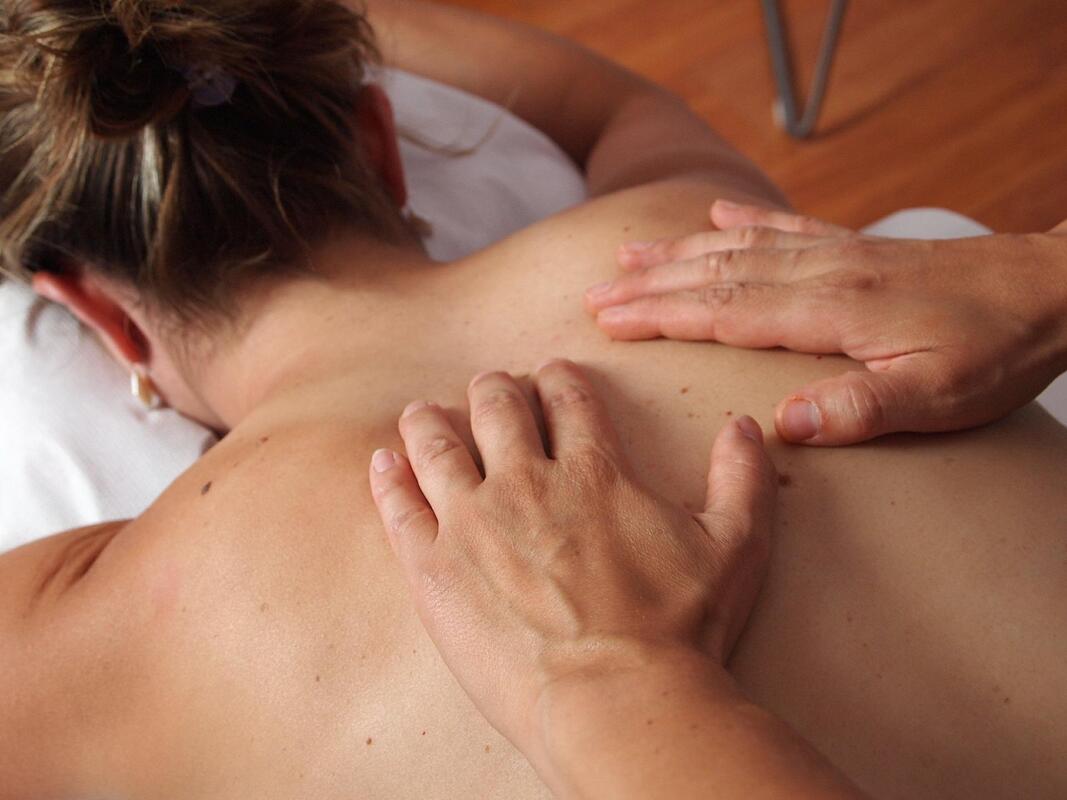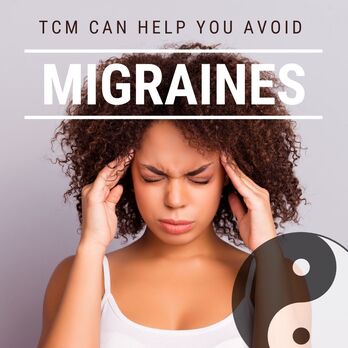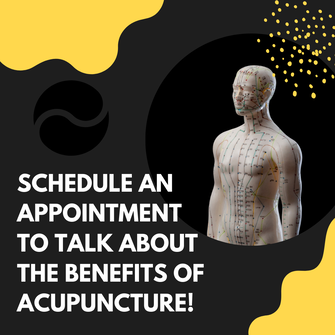 Many research studies are proving acupuncture can help ease symptoms associated with chronic tension headaches. One of these studies published by the Cochrane Library concluded a course of six acupuncture treatments can be a viable option in the treatment of “tension-type headaches”. According to the study, participants treated with acupuncture and pain-killers reported their headache frequency was less. This study was actually a compilation of several acupuncture trials. A total of 12 trials met the criteria to be included in this conclusive study. Acupuncture was also compared to several other modalities such as massage and physiotherapy, but the findings were inconclusive. Tension headaches are not as debilitating as migraines but often occur more frequently. Tension headaches are reported to be the most common type of headache experienced. Stress tends to be the biggest factor regarding these types of headaches. Those who suffer from tension headaches frequently report a feeling of their head being squeezed, with pressure around the forehead, temples, and back of the head or neck. Tension headaches can last for as short as 30 minutes or they could linger for days. While the exact cause of tension headaches is still not clear, they are most commonly attributed to muscle tension or spasms of the head, face, scalp, or jaw. Tension headaches are considered chronic if a person experiences them 15 or more days per month for several months. The most common treatment for tension headaches is over-the-counter medications like ibuprofen or aspirin. Severe cases are sometimes treated with prescription drugs, but they tend to fail because they do not address the root cause of the headaches. Traditional Chinese Medicine is known for locating and treating the root cause of any ailment, including tension headaches. One of the ways TCM treats the root is by identifying personal triggers that create tension-type headaches. The licensed acupuncturist plays the role of a detective when treating patients. Acupuncturists usually ask multiple questions regarding the symptoms of any illness, including tension-type headaches. This allows for proper diagnosis and treatments. This can also give the patient insight into why the headaches keep occurring and how they can eliminate some of the triggers. TCM includes more than just acupuncture. Herbal formulas, accessory modalities such as cupping or tuina, and even relaxation techniques such as deep breathing, meditation, or qi gong are a part of TCM. Acupuncture itself provides headache relief with a great deal of success. As few as one or two needles can be sufficient in stopping tension-type headaches. Acupuncture is also very effective at providing relief from stress and anxiety, two of the most common triggers of tension-type headaches. By adding in herbs and accessory modalities, the patient then has the tools needed to counter oncoming headaches on a long-term basis. The acupuncture treatments then become a type of maintenance to keep the headaches at bay. A person suffering from tension-type headaches could benefit greatly from regular acupuncture treatments. If you are one of the nearly 1.4 billion people that suffer regularly from tension-type headaches, give me a call today, acupuncture and TCM CAN HELP!  Extreme fatigue, depression, severe abdominal cramps, food cravings. Premenstrual syndrome (PMS) is one of the most common women’s health conditions that completely lacks any reliable Western medical treatment for its symptoms. Yet it’s part of many people’s regular menstrual pattern. So many women suffer from severe side effects of PMS—so much so that it affects their daily lives for at least a few days every single month. While the painful and disruptive PMS are naturally occurring and there’s no way to get rid of them completely (after all, menstrual symptoms are messages from the body asking for rest and care!), Traditional Chinese Medicine offers a natural solution that may be even more effective than medication. Can Acupuncture & Acupressure Ease PMS? An analysis of 15 studies with over 1000 subjects found that acupressure can reduce moderate to severe PMS symptoms. An analysis of 15 studies found that acupuncture treatment was significantly effective in treating PMS, compared with medicine and sham acupuncture. While more, larger studies are needed to fully confirm the scientific evidence of acupuncture to treat Premenstrual Syndrome symptoms, there is a slew of promising research to back it. Since PMS has such varied effects on different women—from moodness to severe abdominal pain—there are also a variety of ways acupuncture and TCM may be used to help. In particular, studies show that acupuncture and acupressure are sure-fire solutions for mood swings, depression, pain, and anxiety—some of the major symptoms of PMS. The most commonly used acupoints for PMS treatment are SP6, LR3, and RN4. Other Natural Treatments There are a variety of natural, personalized solutions for the debilitating aggravation of PMS. If you’re a person who experiences PMS symptoms, you know it can be quite the journey with advice, experimentation, and routine to discover what works best for you. Here are some tips that experts agree help reduce the pain and discomfort of PMS:
Sources: https://www.ncbi.nlm.nih.gov/pmc/articles/PMC6614973/ https://www.ncbi.nlm.nih.gov/pmc/articles/PMC6614973/  Getting outside does the body good. There are scores of scientific studies that confirm just how good! But “earthing” takes a walk outside to another, deeper, more healing level. What Is Earthing? Also called “grounding,” earthing simply means walking barefoot on a natural surface like grass, soil, or sand. It’s important to remember that it is different than just walking outside, although that, too, is beneficial in so many ways. Making direct physical contact with the ground—and that doesn’t mean concrete or other man-made surfaces—is what it’s all about. The prominence of the element carbon is what designates something as organic matter—and I don’t mean “organic” like your groceries! All living things are carbon-based. If you do any gardening or backyard composting, you’ll probably recognize that term, “carbon-based,” as the “green” stuff you put in your compost: leaves, grass trimmings, veggie cast-offs. Earthing is also different from forest bathing, or shinrin-yoku, which is the Japanese practice of fully immersing oneself in nature. How Earthing Works in Your Body There are so many studies that confirm how beneficial earthing is for our bodies and minds. A research review led by Gaétan Chevalier of multiple studies published in the Journal of Environmental and Public Health illustrates how earthing has been shown to reduce stress, support immunity, help moderate heart rate and glucose levels, and even help wounds heal faster. While there is still a lot to learn about how connecting physically with Earth affects our bodies, research shows that it has a lot to do with electrons and electromagnetic charge. Walking barefoot on organic surfaces actually changes the electrical activity of our brain. It can even produce “measurable differences in the concentrations of white blood cells, cytokines, and other molecules involved in the inflammatory response,” according to the review by Chevalier. Amazingly, this presence of carbon seems to be what makes carbon-fiber mattresses so helpful for better sleep and pain relief! According to a study in The Journal of Alternative and Complementary Medicine, earthing may even help improve the function of red blood cells, a major factor in heart disease. Another study shows that earthing may help regulate both the endocrine and nervous systems. Earthing is an amazing addition to your wellness care routine, just like regular acupuncture visits. Let’s schedule you for a spring tune-up to make sure you’re as healthy as you can be! Sources: Earthing: Health Implications of Reconnecting the Human Body to the Earth's Surface Electrons, Gaétan Chevalier, Stephen T. Sinatra, James L. Oschman, Karol Sokal, Pawel Sokal: https://www.ncbi.nlm.nih.gov/pmc/articles/PMC3265077/ The effects of grounding (earthing) on inflammation, the immune response, wound healing, and prevention and treatment of chronic inflammatory and autoimmune diseases, James L Oschman, Gaétan Chevalier, and Richard Brown: https://www.ncbi.nlm.nih.gov/pmc/articles/PMC4378297/ Earthing the Human Body Influences Physiologic Processes, Karol Sokal, MD, PhD, and Pawel Sokal, MD, PhD: https://www.ncbi.nlm.nih.gov/pmc/articles/PMC3154031  Migraine triggers don’t necessarily cause a migraine; they are simply factors that increase the likelihood of getting a migraine. Triggers play a role in activating the process that leads to a migraine. Not every trigger causes a migraine for every person, even if a person is sensitive to a particular trigger. But how much do you really know about controlling your migraines? New research suggests you not know as much as you think. According to Timothy T. Houle, Ph.D. and co-author Dana P. Turner, M.S.P.H., both of the Wake Forest Baptist anesthesiology department, migraine sufferers make inaccurate conclusions about what triggers their migraines. Houle and Turner conducted a 3-month study of 9 women who suffered from migraines. They tracked the women’s hormone levels, stress levels, and the weather. The women kept daily diaries. At the end of the study, the scientists could not accurately predict which triggers would cause a migraine. Their conclusion—most people can’t isolate the many complex variables in everyday life to accurately determine their migraine triggers. That means triggers are complex and situational. So what can you do? Pay attention to your own habits and migraines. While researchers may disagree about the accuracy of pinpointing migraine triggers, it’s important to remember that you know your body better than anyone. Living with migraines for years gives you deeper insight to what brings on migraines for you—if you observe them. If you find a correlation between a trigger and your migraines, trust it! Part of the difficulty of identifying triggers is that some triggers may be active only under certain circumstances and involve layers of complexity. For example, you may be able to eat cheese or drink wine sometimes with no negative consequences, but consuming these things late at night or during a stressful time might contribute to a migraine. Many people are more susceptible to migraine when multiple triggers are present at once. As your care providers, it’s important to always support your own knowledge of your body and your migraines. You know your triggers and I respect your intuition. Common Migraine Triggers Hormone Fluctuations Hormone changes can trigger migraines. Sometimes birth control pills increase migraines (while sometimes pregnancy prevents them). Monthly hormonal cycles can contribute in big ways to triggering migraines. Food and Nutrition What you eat and drink contributes a lot to your sensitivity to developing migraines. Typical food triggers include aged cheeses, processed meats, yeast breads, peanuts, legumes, caffeine, alcohol (especially red wine), chocolate, vinegar, fermented foods, tannin-heavy fruits (like citrus, raisins, red plums, etc.), and many more. In addition, some people are sensitive to sulfates, nitrates, nitrites, food coloring, and other food additives. Lifestyle and Habits Many triggers have to do with your daily habits, lifestyle, and environment. Stress can be a major factor that contributes to migraine development. No surprise there! Other triggers can be fatigue, lack of sleep, over-sleeping too much, missing meals, changes in barometric pressure, or certain light hues or brightness. Strong smells such as paint, gasoline, or heavy perfumes can also be triggers. Buying an air filter for your home can be a game-changer for your migraine management. While genetics don’t “trigger” a migraine, they play a role in how likely you are to suffer from migraines in general. Quick tips for migraine management:
Acupuncture has proven to be a very effective treatment for balancing the constitution thereby reducing sensitivity to triggers. Acupuncture is a safe, natural, and minimally invasive way to take control of your health. Don’t wait, let’s schedule your appointment today!  Arthritis is one of the most common joint ailments, affecting over 54 million adults in the United States. Caused by a swelling of the joints, it can range from bothersome to extremely painful and can be a hindrance to everyday activities. Arthritis, along with other types of joint health issues, can be one of the most life-altering conditions to live with—because it can hinder everything from one’s ability to get regular exercise to how much someone can go to work. Thankfully, applications of Traditional Chinese Medicine (TCM) and acupuncture can be amazingly helpful as arthritis treatments and general joint health maintenance protocol. Within the theory of TCM and acupuncture, our essential life energy or qi (pronounced “chee”) flows along the meridians of the body. When the flow is constricted or imbalanced, we may experience illness or pain. The needles used in acupuncture are carefully placed along points connected to the meridians, stimulating those places to correct and encourage the flow of energy. In TCM, the entire body is understood as a multifaceted mechanism whose parts function in concert—not silo-ed sections to be treated in isolation. Various studies, including one by the Center for Integrative Medicine at the University of Maryland School of Medicine, found that patients felt significantly less pain and had an easier time walking after receiving legitimate acupuncture treatments. Treating Rheumatoid Arthritis There are many different types of arthritis, some with very few treatment options as dictated by Western Medicine. Rheumatoid arthritis (RA) is one variety that can be hugely disruptive to sufferers’ lives. RA is a chronic systemic autoimmune disease that’s linked with progressive joint damage, resulting in severe chronic pain and long-term mobility issues. Western medicine comes up short when trying to treat RA. Yet many clinical trials have shown that Traditional Chinese Medicine (TCM) has advantages in the treatment of RA. Osteoarthritis & Preventing Knee Replacement Another common and very detrimental type of arthritis is osteoarthritis, particular in the knee joints, and especially affecting older adults. When knee osteoarthritis gets severe enough, total knee replacement is the final treatment option. A wide-ranging study of over 34,000 patients in Taiwan showed that TCM treatments reduced risk of total knee replacement in patients with knee osteoarthritis, and that enhanced benefits results from long-term treatment. The longer a patient used TCM, the less likely they were to need a knee replacement. Sources: https://www.ncbi.nlm.nih.gov/pmc/articles/PMC7302630/ https://journals.lww.com/md-journal/fulltext/2019/06070/traditional_chinese_medicine_therapy_reduces_the.58.aspx https://www.arthritis.org/health-wellness/treatment/complementary-therapies/natural-therapies/acupuncture-for-arthritis |
AuthorsRebecca M H Kitzerow is a Licensed Acupuncturist practicing in La Center, Washington. With over a decade of experience she has won 10 Nattie consumer choice awards from Natural Awakenings Magazine since 2014. Archives
July 2024
Categories
All
|
Photos from Hey Paul Studios, BeGreen_Studio, Pawel Pacholec, 1950sUnlimited, toulupaliaqaz, Joelk75, OnTask, Robert Gourley, cnu_sports, Mitya Ku, wuestenigel (CC BY 2.0), FootMassagez, 401(K) 2013, Mariana Heinz, @EdwardTerry, fishhawk, liverpoolhls, torbakhopper, Boemski, dolomitibl, Driscolltheque, Dave n Laura, Vaping360, MVWorks, Life Mental Health, MVWorks, mikefats, Scot Nelson, jfl1066, wZa HK, ruurmo, Guadalupe Cervilla, Army Medicine, GViciano, torbakhopper, adrigu, Saulo Cruz, Ben Cumming, marniejoyce, kcxd, JasonCorey, kanenas.net, Live to Create Photography, gm.esthermax, Unique Hotels Group, Zenspa1, mysiana, Tobias Lindman, Leader Nancy Pelosi, Kristoffer Trolle, swanksalot, Bill Selak, Parker Knight, stimpsonjake, Gedankensprudler, SuperFantastic, tonynetone, marniejoyce, JeepersMedia, Illusive Photography, 'Ajnagraphy', Iban Torras, scotted400, gtall1, dvanzuijlekom, BPPrice, Skley, torbakhopper, Renato Ganoza, anka.albrecht, QUOI Media, Public Domain Photos, Instant Vantage, Victor Tongdee, Free Grunge Textures - www.freestock.ca, sportEX journals, Nadja Tatar, angela n., marniejoyce, MVWorks, Karolina Kabat, Thomas Fisher Rare Book Library, UofT, ginnerobot, tracilawson, haven't the slightest, My Photo Journeys, Pierre Willemin, Florena_Presse, SuperFantastic, colindunn, zzkt, TraumaAndDissociation, ER24 EMS (Pty) Ltd., shixart1985 (CC BY 2.0), marniejoyce, Tomás Fano, freestock.ca ♡ dare to share beauty, Archives New Zealand, Jaykhuang, airdrie.m, Go-tea 郭天, OnTask, wuestenigel, focusonmore.com, Disney | ABC Television Group, Andrew Gustar, Didriks, ConstructionDealMkting, charlywkarl, barnimages.com, Lel4nd, runwaypilates, michaelstephanfotografie, McLevn, TraumaAndDissociation, eLife - the journal, Lars Plougmann, wuestenigel, shixart1985, boviate, davis.steve32, kevin dooley, @the.photoguy (insta), frederic.gombert, Feathering the Nest, Victor Tondee, shixart1985, wuestenigel, Joe K Gage, kennethkonica
 RSS Feed
RSS Feed
